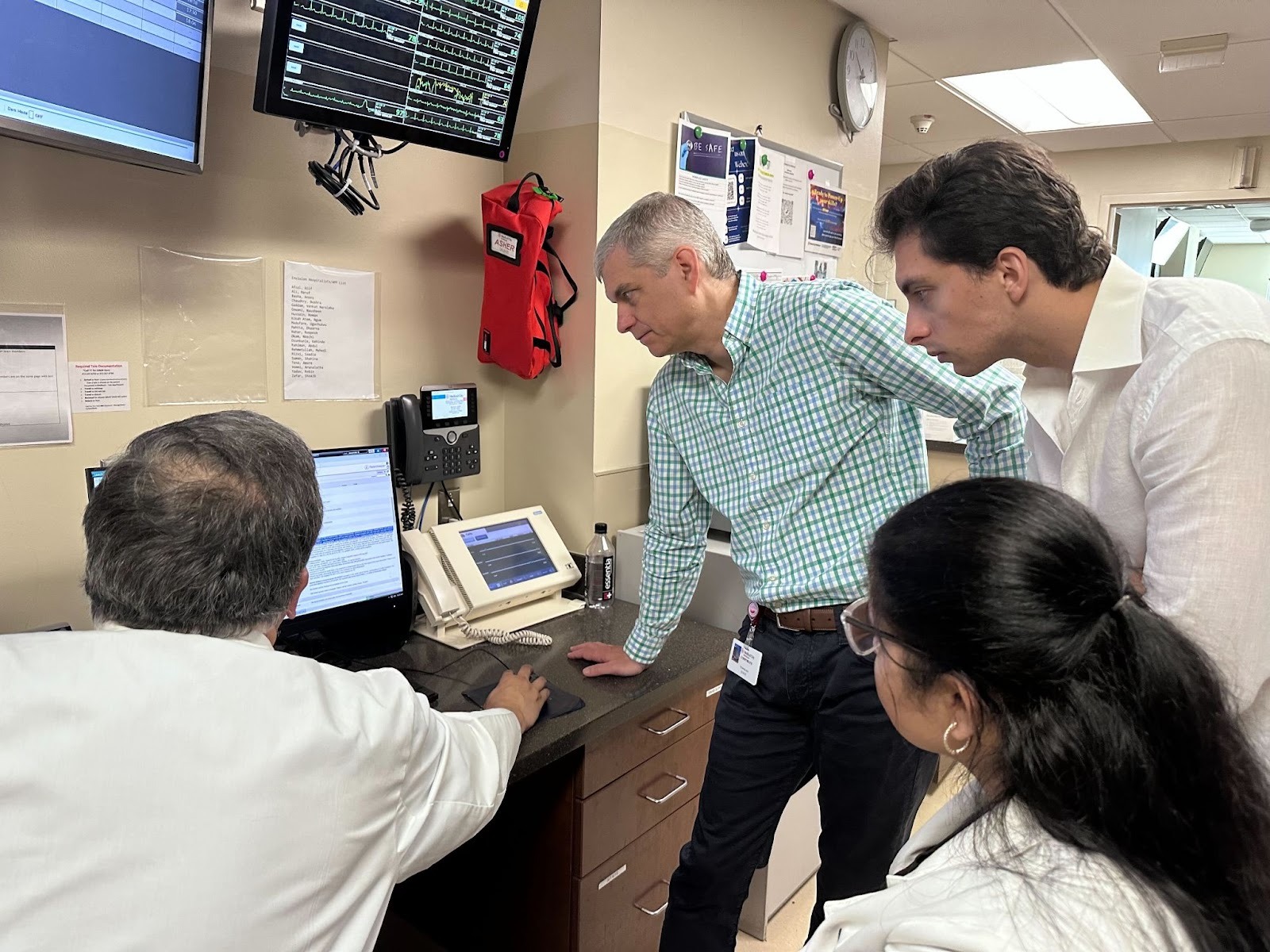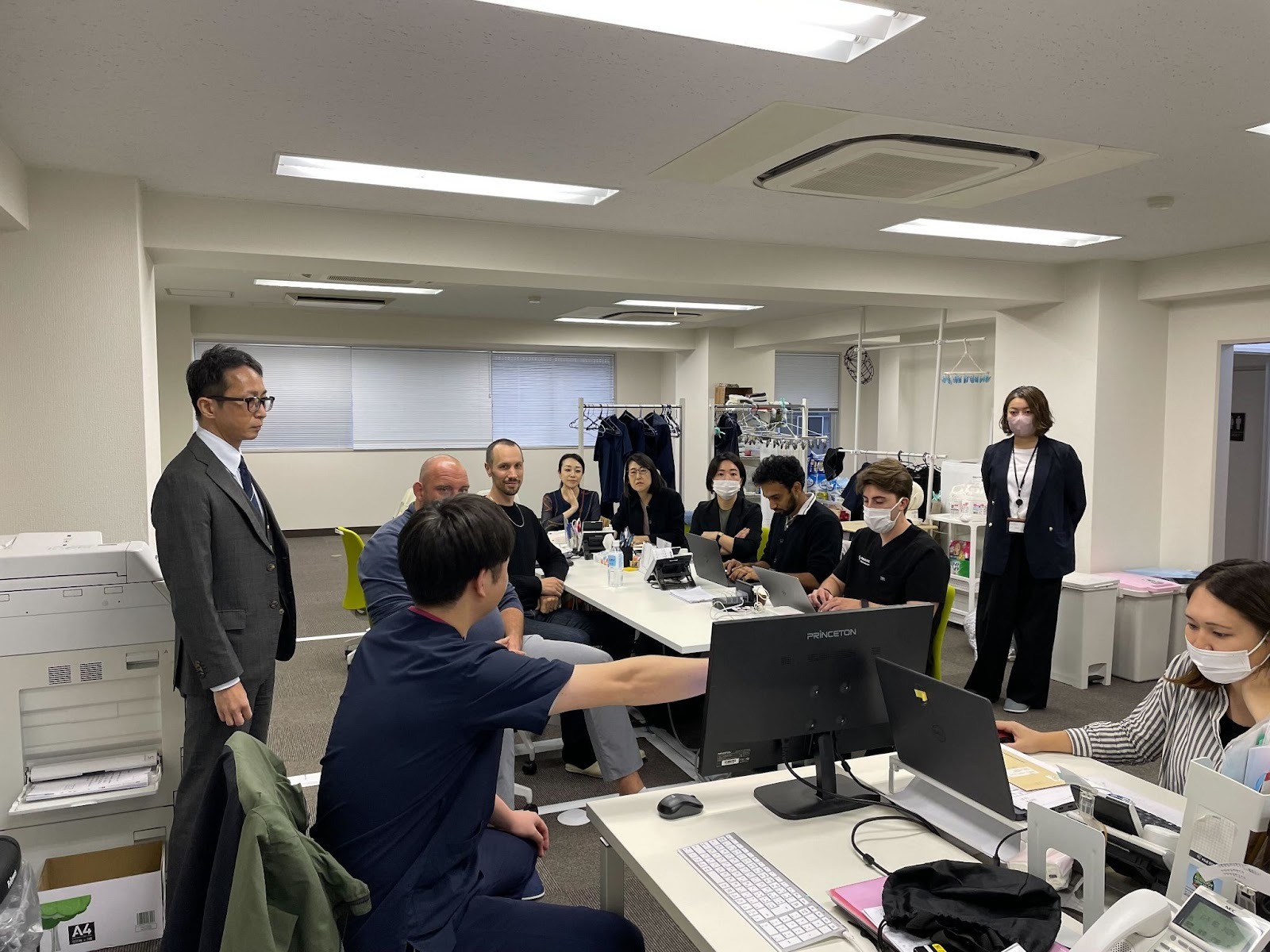Healthcare organizations stand on the brink of a major transformation. According to Dhruv Parthasarthy, CTO of Commure, the nature of healthcare companies is changing fundamentally. "What looks like a health system today will look a lot more like a technology company tomorrow," Dhruv explains. This evolution echoes shifts already witnessed in other sectors. Just as Amazon reshaped retail and cloud computing, and YouTube redefined media, healthcare organizations will soon recognize technology as a core capability, akin to clinical quality today.
Watch the full interview with Dhruv below or read the key takeaways, which detail Commure's commitment to helping health systems make the transition to technology-driven enterprises.
Empowering Health Systems to Build Like Tech Companies
Commure's approach to enabling this transformation revolves around a layered technology architecture. At its foundation lies a robust, unified data layer. Dhruv emphasizes, "We really believe that having a really excellent data abstraction layer is the foundation of a good technology business." This unified foundation ensures clarity, accuracy, and accessibility across healthcare applications.
Building on top of this data layer, Commure facilitates seamless application integration. Dhruv highlights that "We're designing all our data abstractions to make it such that health systems can easily deploy either our applications...or their applications." Additionally, Commure leverages advanced large language models (LLMs) for unprecedented customization capabilities.
This philosophy represents a shift from traditional health IT, where systems are typically siloed, difficult to integrate, and require extensive manual customization. Commure is flipping that model. Rather than forcing health systems to conform to a rigid software product, the platform is designed to empower them to create and evolve their own digital infrastructure with ease. The goal isn’t just better software, it’s to equip health systems with the tools and flexibility they need to think and operate like modern technology organizations.
Designing for Safety, Iteration, and Scale
Healthcare technology development inherently grapples with a crucial paradox: rapid innovation versus stringent safety requirements. "The safety margin has to be really large...think auto industry times 10," explains Dhruv. To navigate this, Commure employs a unique simulation-based approach, refining solutions within small, agile practices first.
These smaller healthcare practices act as innovative testbeds, enabling Commure to rapidly prototype and refine before broader implementation. Dhruv describes this strategy clearly: "These small practices enable us to do cutting-edge work...and then take that same technology up to the biggest health systems in the world."
Complementing this technical strategy is Commure's quality-focused engineering culture. Drawing parallels with another industry leader, Dhruv asserts, "Apple as a culture is so meticulous...that's the same approach we're trying to take in healthcare." This level of precision is critical when technologies move from fast-moving clinical environments into large, complex health systems. Every detail, from how the software behaves under edge-case conditions to how it's documented for enterprise teams, must meet the highest bar. Commure’s engineering culture ensures that what works in a small clinic scales to large health systems.
Purpose-Built for Healthcare, Not Ported from Elsewhere
Healthcare isn’t just another vertical; it’s an ecosystem shaped by decades of deeply embedded workflows, regulatory complexity, and high-stakes decisions. Generic software often breaks down when applied to these environments because it lacks the clinical, operational, and compliance-specific logic needed to function effectively.
Commure’s approach is grounded in the belief that building software for healthcare requires the same level of domain knowledge clinicians bring to patient care. Dhruv puts it plainly: "We are a software company focused on healthcare. The same level of knowledge and awareness that clinicians have for their health systems, we have for their products and their use cases." This isn’t just a design preference; it’s a safeguard, minimizing costly implementation missteps, reducing user friction, and ensuring new technologies align with the way care is actually delivered. That knowledge is reflected in everything from how interfaces are designed to how data standards like HL7 and FHIR are handled natively from day one.
LLMs Will Reshape Clinical Work and Software Itself
Commure recognizes that LLMs dramatically lower the barriers and costs associated with software development and customization. But the impact of LLMs extends beyond coding.
Most of the industry is still focused on early applications like documentation assistance and voice-to-text transcription. But Dhruv foresees LLMs evolving into far more powerful tools: indispensable clinical co-pilots that support reasoning, recall, and recommendations at the point of care. "You won't have to know every little piece of data...that'll all be something an LLM uses," Dhruv predicts.
These systems can surface relevant medical literature, synthesize scattered patient information, and adapt to organization-specific protocols. Ultimately, this technology democratizes access to world-class healthcare, enhancing clinician capabilities and reducing burnout.
A Long-Term Transformation, Not a Quick Sale
Commure isn’t chasing quick wins or short-term implementations. Its focus is on building enduring partnerships that support longterm transformation. Dhruv emphasizes, "We're not really looking for 'buy this and we're out of here in the next year.'" Instead, Commure aims to work alongside healthcare organizations as they evolve into modern, tech-enabled enterprises.
This philosophy is reflected in the length and depth of its customer relationships. "Some of our earliest customers are now 20 years into their journey with us," Dhruv notes. That kind of longevity requires not just great products, but mutual trust, adaptability, and a shared commitment to innovation.
Commure’s platform is built to support this journey, helping health systems develop core technology capabilities that will serve them not just today, but for the next decade and beyond. Ready to see what the next healthcare powered by AI looks like in action?




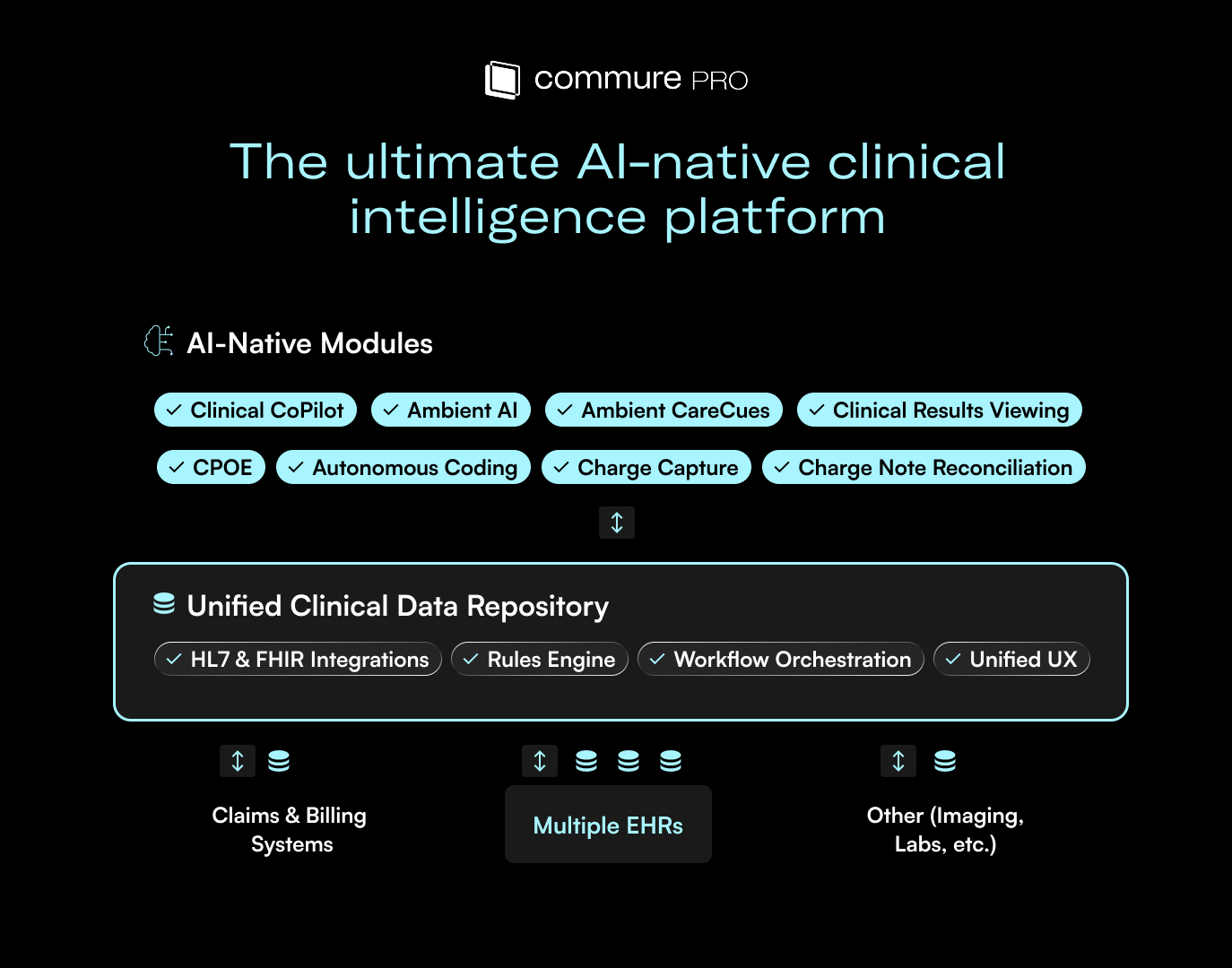

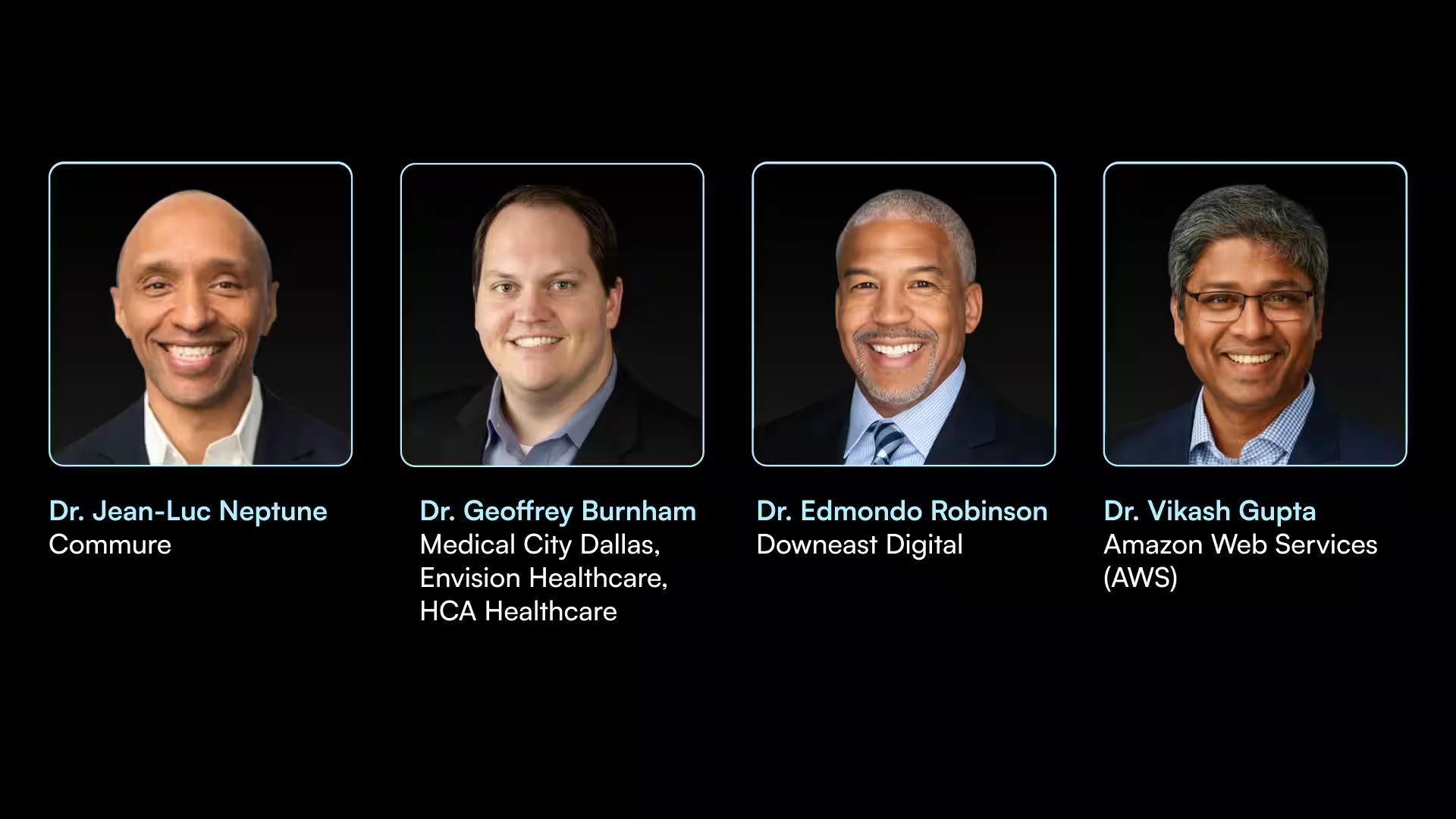

.avif)
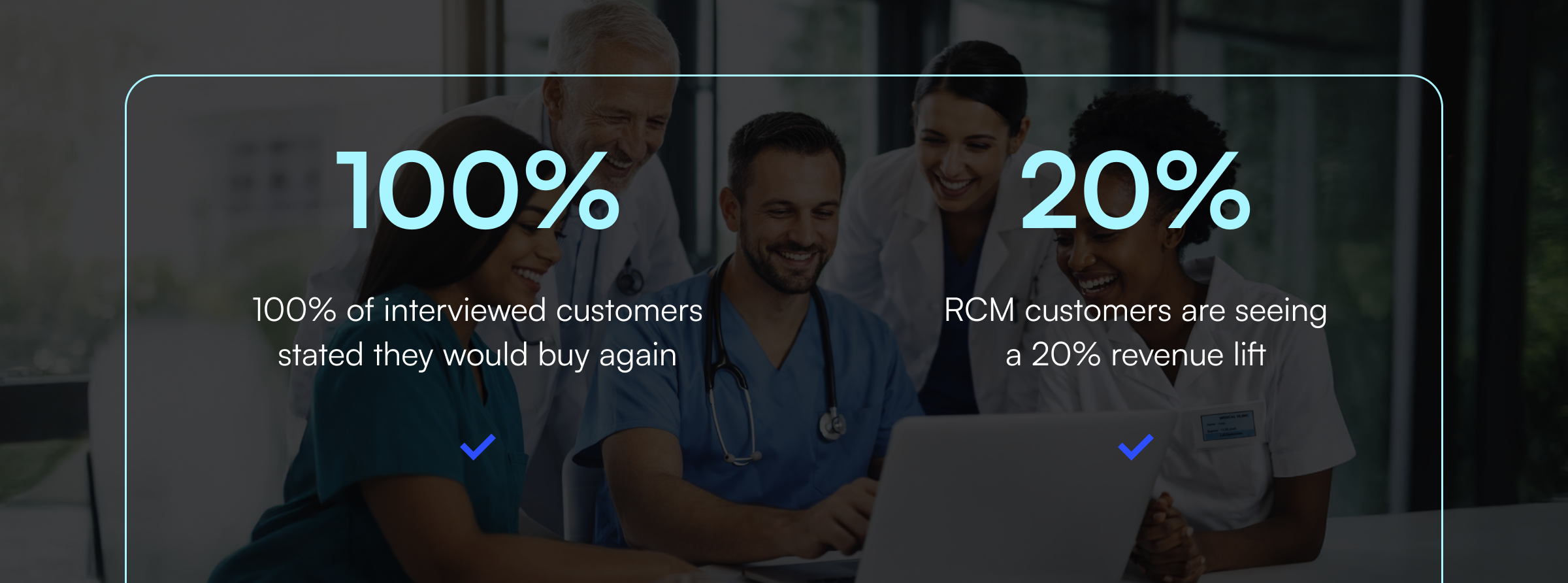
.png)
